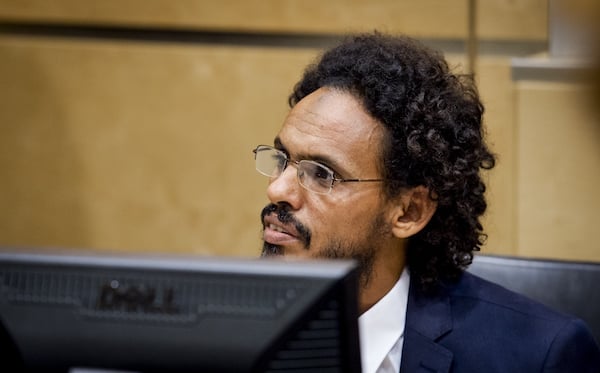Law & Politics
In Landmark Trial, Islamic Extremist Pleads Guilty to Destruction of Cultural Heritage
It's the first trial to treat cultural destruction as a war crime.

It's the first trial to treat cultural destruction as a war crime.

Henri Neuendorf

On Monday, August 22, the Malian Islamic extremist Ahmad al-Faqi al Mahdi pleaded guilty to the destruction of cultural heritage in Timbuktu, Mali, at the International Criminal Court (ICC) in The Hague.
The landmark case marks the first time that the ICC has attempted to prosecute the destruction of cultural heritage as a war crime, and Faqi’s guilty plea is being hailed as a great success in the fight against cultural cleansing, Courthouse News reported.
As leader of the Ansar Dine group of extremist separatists affiliated to al-Qaida, Faqi stands accused of ordering the destruction of nine Sufi shrines and tombs of Sufi saints, as well as a 15th-century mosque in the UNESCO World Heritage Site of Timbuktu, during the Islamist takeover of Northern Mali in 2012.
Timbuktu reportedly holds over 700,000 manuscripts dating back 600 years, and according to UNESCO, over 4,000 were destroyed in the conflict.
Explaining the significance of the case, Erin Thompson, a professor at Manhattan’s John Jay College specializing in art crime told Courthouse News, “Up to now, the destruction and looting of cultural property has been seen as low-risk and without consequences.” But, she added, “Now, we’ve shown that destruction will be treated as a serious crime and prosecuted. I hope to see the elaborate videos that IS produced, documenting their destruction of sites like Palmyra, playing again soon—in a courtroom.”
As such, Faqi’s case could set a precedent for the prosecution of Islamic State militants who razed the ancient Roman city of Palmyra in Syria.
Meanwhile prosecutors in The Hague have been working with Situ Research, the research department of New York-based Situ Studio to present cutting-edge visual evidence of the cultural destruction, allowing judges to evaluate photos and videos taken by locals before, during, and after the destruction.
Faqi—who faces up to 30 years imprisonment—said he is prepared to accept punishment for his crimes. He said that he hoped, “that my time in prison will be a source of purging the evil spirits that have taken over me.”